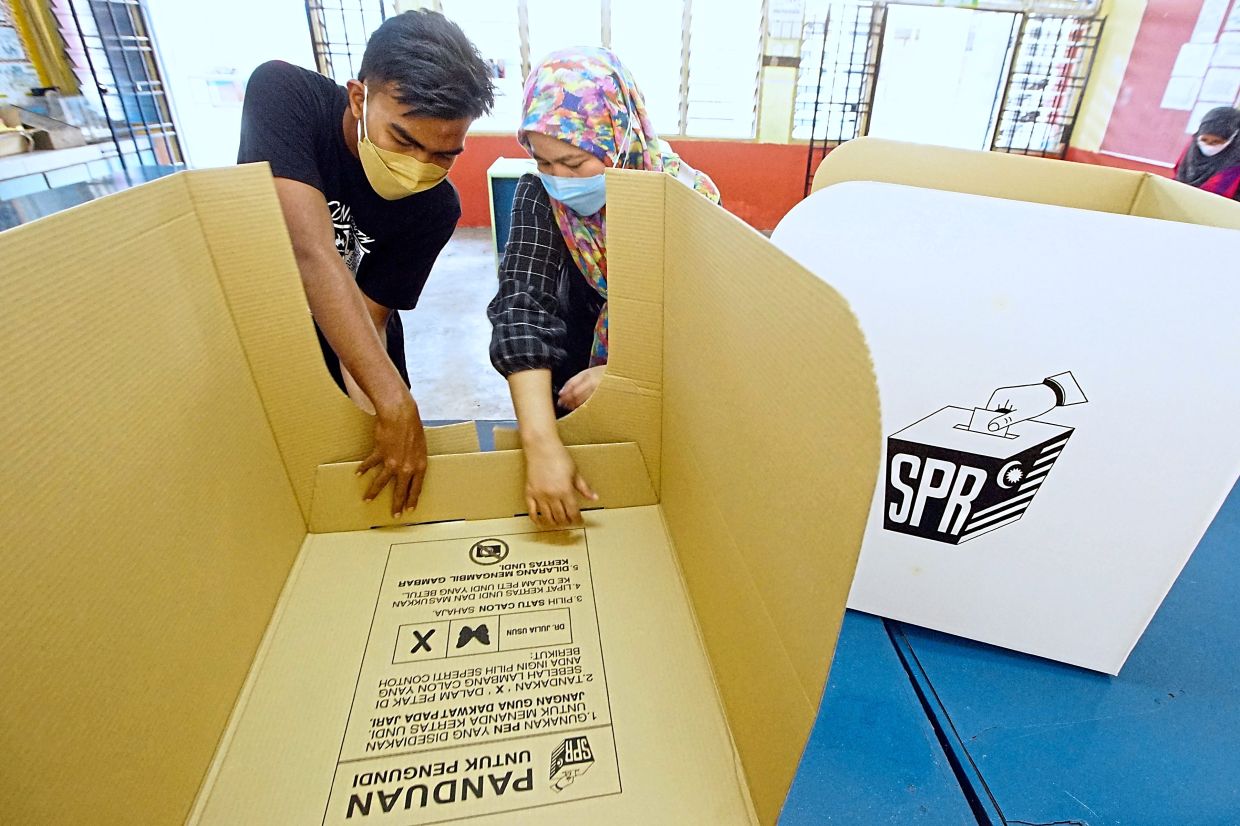
New normal: Covid-19 is here to stay, so we need to learn to live with the coronavirus and hold a general election amid the health crisis. – THOMAS YONG/The Star
IT doesn’t take a genius to suss out investors’ feelings about Malaysia. It’s not the most attractive place to do business in for a variety of reasons, and if our politicians care to speak to the various commerce chambers, they will hear it straight.
Topping the list of hindrances is the protracted political instability that has plagued the country since the 2018 general election.
We’ve had three Prime Ministers since then, and while we now have some resemblance of political stability because of the truce between the government and the opposition, we’re still explicitly aware of its finite lifespan.
The Memorandum of Understanding inked by both sides ends in July, which is less than five months away. We all know that it’s a fragile relationship glued together at the behest of the palace to ensure that we can ride the storm of the pandemic. Even before the MOU’s expiration date, the political decibels have gone up a few notches with demands from Umno – a major stakeholder in the Federal Government – for a general election.
There have been reservations from Prime Minister Datuk Seri Ismail Sabri and some Cabinet members, including those from Umno, over the chorus for a GE, but it will be difficult to go against the tide of Umno members.
Yes, Malaysia hasn’t broken free of the shackles of Covid-19, but it’s now endemic. It’s here to stay, so it can’t be a convincing reason to stall an election.
Besides, we’ve already had the Sabah, Melaka, Sarawak and Johor state elections.
But let’s put political reasons aside. Investors are not taking Malaysia seriously because they see the present government as a floating one headed by a PM who needs to earn his mandate.
That mandate can only be obtained if there is a GE. It doesn’t bode well that he’s not the head of his own party.
Financial analysts have long warned that such a political impasse would cause problems in raising national borrowing limits and stymieing spending.
It has also blighted Bursa as Malaysia continues to be the worst performer in the region. While politics isn’t the only reason since there’s also an absence of tech stocks, bickering politicians aren’t helping the cause.
If there’s no clear leadership, even with Ismail replacing Tan Sri Muhyiddin Yassin, the country will still be dogged by further uncertainty, which just translates to economic stagnation.
And here’s the irony. The media reported on Aug 13, 2021, the then PM, Muhyiddin, pledging that GE15 will be held latest by July 2022 end.
Despite the positive economic narrative and projections, it’s difficult to see how Malaysia can engineer a different growth trajectory.
There will still be direct foreign investments coming in, but we’re fighting regional counterparts including Vietnam and Indonesia.
Politics isn’t just the monopoly of politicians. The sentiments of foreign investors do matter because foreigners contribute about 40% to Malaysia’s sovereign debt.
It’s no secret that foreign money has been flowing out of the country because the pandemic and political instability have delayed economic planning and stalled attempts at tax reform.
The priority for investors is for a stable leader to emerge because the economic outlook could turn cloudy. But how do we resolve this political crisis?
Political stability was Malaysia’s bestselling story to investors once. Imagine that.
No one wants to hear a bad story. The word among foreign investors is that certain ministers haven’t even met stakeholders to hear them out.
If that’s true, it’s scandalous because a few are, in fact, revenue earning ministries.
These ministers seem to be placed there because of power sharing and as reward for keeping the Federal Government intact. However, question marks remain over their interest in their portfolios, or if they’re even qualified for the job.
Such a perception, true or false, doesn’t endear Malaysia to investors.
Investors see the current Federal Government as precarious and, truth be told, not many are in the mood to extend the MOU.
But calling a GE isn’t a panacea either if the result from the poll continues to be fragmented and unconvincing.
One thing is certain, though – dragging on with an unsalvageable broken relationship is simply unrealistic.





